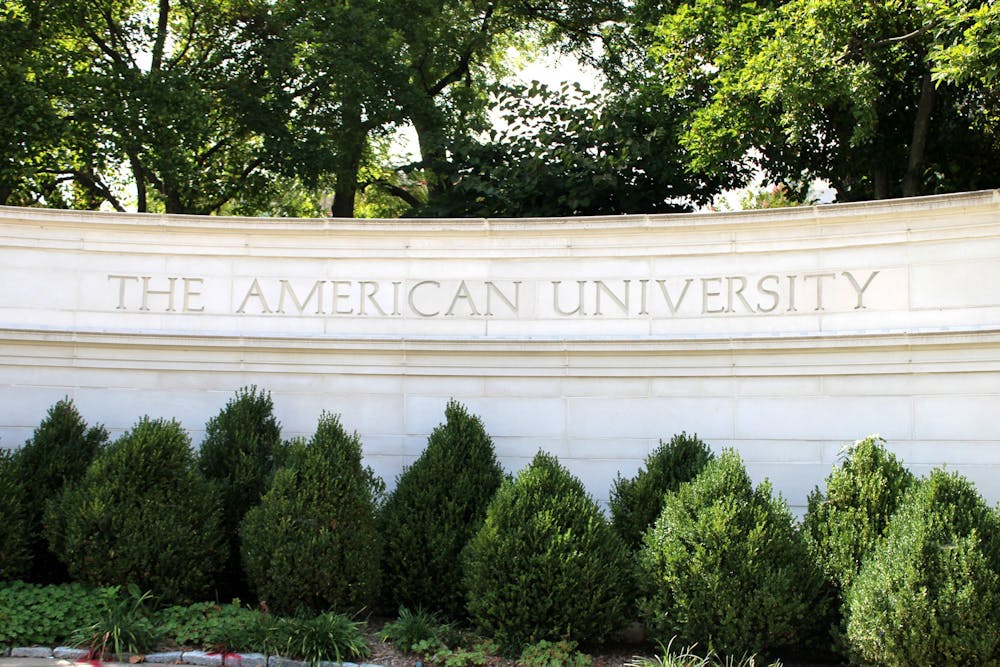American University announced today that it will increase undergraduate tuition by 4 percent for the upcoming school year. It will supplement the tuition increase with a 4.9 percent increase in financial aid to reflect its commitment to “access and affordability,” CFO, Vice President and Treasurer Bronté Burleigh-Jones said in an interview with The Eagle.
This year’s tuition increase is lower than those in the previous two school years, which saw 5 percent undergraduate increases. When the University announced those increases in 2022, it increased average student financial aid by 9 percent. A tuition increase generates “positive net tuition” for the University, while it remains committed to affordability by increasing financial aid, Burleigh-Jones said.
Graduate tuition will see a 4.1 percent increase, which amounts to a $78 increase per credit hour, according to Burleigh-Jones. Washington College of Law tuition will increase by 4 percent.
Housing prices will increase by 4.5 percent for each residence hall, except for Roper Hall and Hughes Hall because “we’ve not done the kinds of renovations, they don’t have the same level of amenities as the other residence halls,” Burleigh-Jones said. The University is renovating McDowell Hall this summer, and then will renovate Roper, followed by Hughes. Roper is currently home to the University’s Black Affinity Housing program.
Dining cost will increase by 8 percent, which applies to all meal plans. For the basic plan, the cheapest of the all inclusive plans, this means a $449 increase, Burleigh-Jones said.
Mandatory fees, like Student Activity and Technology fees, will not increase in the next school year, according to Burleigh-Jones.
Regular tuition increases, Burleigh-Jones said, are a matter of inflation. “[The] sheer cost of operating the University year to year increases,” she added.
“I think what is really important is our commitment to have access and affordability,” Burleigh-Jones said. “Sitting down with the appropriate people on the team and saying ‘okay, if I do this kind of increase with tuition, what do I need to do with financial aid to be sure that we don’t impact affordability for our students, while at the same time generating positive net tuition for the University, so that we can handle the expenses and priorities that we’ve identified for ourselves?’”
Matthew Bennett, vice president and chief communications officer, said the Student Thriving Complex, which is “important to help deliver on what the student experiences,” is an example of one of those priorities.
Burleigh-Jones said the financial aid increase is in part due to the University investing in its endowment and launching a matching scholarship fund and to fundraising from the Change Can’t Wait campaign.
Burleigh-Jones is confident the University will remain attractive to prospective students despite these increases.
“When we look at the increases that we’re doing, they’re below others, and when we look at our overall price tag, it's significantly below a number of … peer institutions,” Burleigh-Jones said. “I think our price tag is attractive to families, and when we demonstrate our commitment to financial aid in the way that we do, I think it’s also attractive.”
Georgetown University’s tuition will increase 4.5 percent for the 2024-25 school year. While George Washington University and Howard University have not yet announced their budgets, last year GW’s tuition increased 4.2 percent and Howard’s increased 7.5 percent.
The rest of the fiscal year 2024-25 budget will be announced in April, once the budget committee, president and board of trustees finalize it.
Correction: A previous version of this article stated that the tuition increase was due to AU's investment in its endowment. The article has been updated to reflect that this is true of the financial aid increase, not the tuition increase.
This article was edited by Tyler Davis and Abigail Turner. Copy editing done by Luna Jinks.





